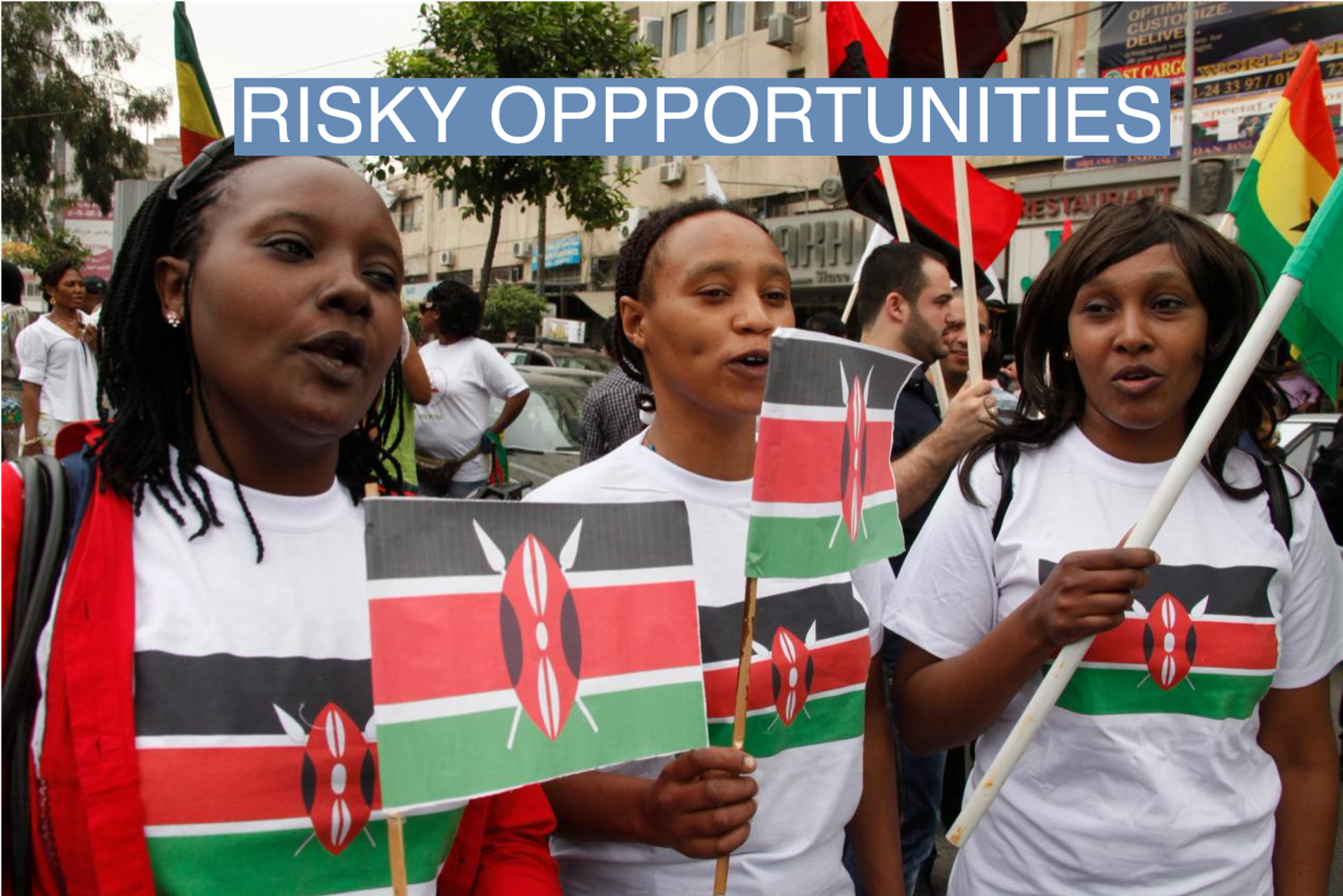The News
NAIROBI — Kenya’s drive for its citizens to find work in Gulf states risks forcing them into a modern slavery system in which physical abuse is common, warn rights groups.
East Africa’s largest economy plans to sign 10 bilateral labor agreements in the next “couple of months” with countries interested in hiring Kenyan workers, President William Ruto said this month. He named Saudi Arabia, United Arab Emirates, the United States, and Canada as countries with which deals could be struck to create job opportunities overseas and boost remittances.
But campaigners say this push risks the safety of those hired as domestic workers, such as housekeepers and cleaners, in Gulf nations where there have been numerous reports of Kenyans being injured or even killed by physically abusive employers. “So many people come back in coffins and the government doesn’t seem to do anything about it,” said John Mwariri, a lawyer at Nairobi’s Kituo Cha Sheria legal advice center representing 11 Gulf returnees seeking compensation from Kenya’s government for allegedly failing to protect them.
“In those Middle East countries, there is a system called kafala that is like modern day slavery,” said Mwariri, referring to a system under which workers cannot change jobs without their employer’s permission, leaving many unable to escape exploitation and abuse. “Kenyans have been exposed to this and that is why we are saying it is risky and Kenyans should not go there until the government comes up with measures that will stop the violations of domestic workers,” he added.
More than 170,000 Kenyans are working in Gulf states, Labor Principal Secretary Geoffrey Kaituko told a parliamentary committee in March. More than 80,000 Kenyan domestic workers secured employment in Saudi Arabia in 2022, according to Labor ministry figures.
Ruto, announcing the labor export push, said diaspora remittances from Kenyans abroad hit a record $4.2 billion in 2022 — more than the $1.2 billion generated from the country’s top export, tea. Kenyans working in Saudi Arabia sent home 37.78 billion Kenyan shillings in 2022 ($302.26 million), up from 23.12 billion Kenyan shillings ($185.01 million) in 2021.
Know More
Kenya banned labor migration to Gulf countries in 2012 after abuse of Kenyan workers in the region was reported.The ban was lifted in 2013 after lobbying by Kenyan recruitment agencies.
In September 2021, Macharia Kamau — who, at the time, was a foreign ministry official — told parliament his department recommended a temporary ban on sending domestic workers to Saudi Arabia. He cited an increase in distress cases and deaths, although the suggestion was rejected. Kamau said 48 deaths were recorded in 2020, 29 of those deaths were of domestic workers. He said 41 Kenyans died there the following year, including 28 domestic workers. Meanwhile, he said, the number of distress cases rose from 88 in 2019 to 1,025 in 2021. Saudi Arabian authorities say most of the deaths were from cardiac arrest.
Vivianne’s view
The push to increase remittances is part of the government’s attempt to shore up its finances. As we recently reported, Kenya is in the throes of a stark budget crisis. The policy makes sense in theory but overlooks the human suffering that’s a reality of work in Gulf states for many Black Africans.
On TikTok, it’s common to find videos featuring Kenyan domestic workers in Saudi Arabia asking to be rescued or talking about their terrible lives.
Steve Oluoch alleges that his sister, who was a domestic worker in the Gulf state, was killed by her employer two years ago. He also claimed the autopsy results from Saudi were “doctored”. He said an autopsy in Kenya found that “she died of neck compression, plus several injuries all over the body were observed.”
Some government officials and members of parliament are said to own recruitment companies that hire workers and send them to work in Gulf states, according to reports in Kenyan media. Two government officials declined to answer Semafor Africa’s questions about the claims.
“That may well be the case and it’s because in this country we allow public servants to do business,” Geoffrey Kaituko, a labor ministry civil servant, told Citizen TV Kenya this month in response to the allegations.
The lure of better-paid work overseas for unemployed Kenyans struggling with the rising cost of living at home should not be underestimated. Some 13.9% of working age Kenyans (over 16) were out of work or long term unemployed in the final quarter of 2022 while nearly a fifth of people aged 15 to 34 were not in education, employment or training. Those figures, combined with the government’s need to balance the books, make this policy seem appealing.
If you’re a young Kenyan keen to earn some money for a few years in a Gulf country under the current system you have to understand that your government has few means to really protect you — and that some people in government might be conflicted because they own stakes in the agencies they’re meant to be policing.
Room for Disagreement
Eliab Muriithi, the Assistant Secretary General of the Association of Skilled Migrant Agencies of Kenya believes bad news has overtaken the good when it comes to the conditions of domestic workers in the Gulf. “Only the undisciplined people who don’t want to work are portraying negative information to Kenyans,” he said.
The View From Tanzania
“Although it might be difficult, domestic workers in Saudi Arabia should unionize as this will ensure they are protected and known. The government should also engage the embassy and the Saudi Arabian government to see how they are handling the situation,” said Paul Kisabo, a human rights lawyer in Tanzania.
Notable
- The BBC’s Africa Eye investigations team produced a documentary that provided insight into the experiences of Africans recruited to work in the Middle East under the kafala system.
